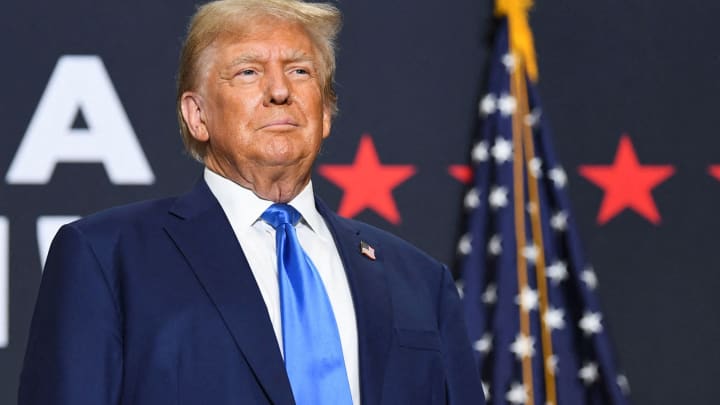
Attorneys for former President have filed a lawsuit seeking to prevent Michigan Secretary of State Jocelyn Benson from refusing to put him on the ballot for her state's 2024 presidential primary and general elections.
The suit, filed Monday in the Michigan Court of Claims, asks a court to declare that Benson lacks authority to decide whether Trump can be disqualified under an interpretation of the Constitution that has spurred lawsuits in . Trump's attorneys also seek an injunction barring Benson from refusing to place Trump on the ballot in Michigan.
The lawsuit comes one day after a state court in Denver, Colorado, began hearing arguments in a separate lawsuit seeking to keep Trump off that state's ballot. Similar lawsuits have been filed in New Hampshire, Arizona and Minnesota.
Benson, a Democrat, has she will not try to keep Trump off the ballot, arguing that it is not up to her to determine his eligibility.
But the lawsuit contends that Benson is "creating uncertainty" by not responding to a letter from the Trump campaign urging her to confirm that Trump will be on the ballot.
The lawsuit also notes that Benson has been sued in a separate legal actions to try to prevent her from including Trump on her list of candidates.
Michigan is one of several states where activists and legal groups have filed lawsuits arguing that Trump should be disqualified from running for office due to his role in fomenting the Jan. 6, 2021, insurrection at the U.S. Capitol.
These lawsuits generally cite Section 3 of the 14th Amendment, which states that no one can hold office who has previously taken an oath to support the Constitution and then "engaged in insurrection or rebellion against the same."
Trump's suit argues that this provision is not "self-executing," and before it can be implemented, Congress must specify how it is to be enforced. Since no one is working to authorize that legislation, neither Benson nor the court can disqualify Trump under Section 3.
Trump's attorneys also argue that Section 3 does not apply to him, because the president is not an "officer of the United States."
Additionally, the attorneys said that the events of Jan. 6 were not an insurrection — and even if they were, Trump did not "engage" in it.
"Inaction is not sufficient," they argued.



